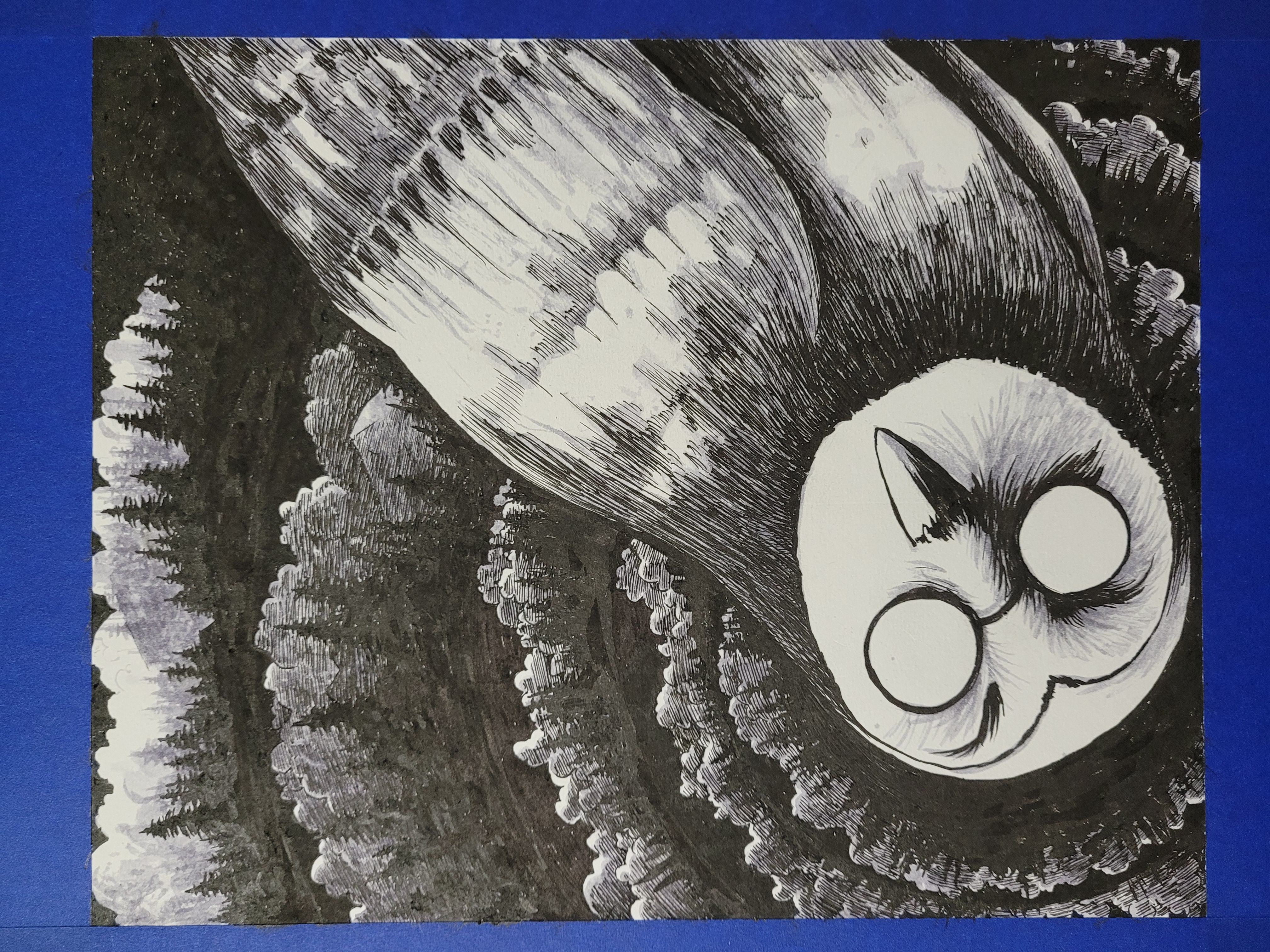I dropped her off this morning and saw girls (and boys) wearing grass skirts, some of them with coconut bras too. I’m not sure what else is going on, but it doesn’t seem very respectful of a native culture that we have seriously fucked over. Would they have a “Native American Day” and let kids come in wearing feathered headdresses?
Or am I reading too much into it?
You should ask some Hawaiian.
It usually heavily depends on the context. Children having fun themed dressed as Hawaiian looks pretty nice, they are kid playing.
I am italian. Super Mario is not offensive, an Italian-themed college party where everyone dress and speak as mobster saying “capisc” is very offensive.
Context matters. Here doesn’t look like the kids are offending anyone. But I am not Hawaiin, you should ask them
I’m hoping someone who is Hawaiian will say something here because I don’t know any Hawaiians myself.
EDIT: Also, I think it’s a little different when it comes to Italian vs. Hawaiian, because Hawaiians are an oppressed people who faced a genocide. Italians got treated like shit in the U.S., but compared to Hawaiians, it’s not really the same.
Pro-tip: it’s never a good idea to compare the suffering of peoples.
I can see why you might not want to compare the suffering of individuals, but what’s the problem with comparing the suffering of groups of people?
Who suffered worse: the native Americans during the trail of tears or those who suffered the holocaust?
deleted by creator
Because it will marginalize the suffering of one of them.
Because one was the victim of a genocide and the other wasn’t?
Removed by mod
Maybe. I just would like to know what a native Hawaiian would think. I know a Native American would likely be offended if they let kids in wearing feathered headdresses. Neither would be universally true, obviously. I’m just speaking in generalities. I guess since it seems offensive to me, I would like an argument for why it isn’t.
That depends on the setting currently. A native Hawaiian back when the culture was in its prime might feel honored. These days, though, the culture has taken such a massive hit that the state is 90% empty, most of the land being owned by random billionaires like Mark Zuckerberg and Oprah Winfrey, many of the traditions having been replaced, and very little being left of their old society. It may come off as a “take what you like destroy what you don’t” kind of situation.
Grass skirts weren’t used in Hawaii until the late 19th century and coconut bars never existed. Neither are Hawaiian culture, but both are stereotypes.
I know this. Neither are practical for skirts/bras anyways. I don’t know any culture that couldn’t weave clothes or wear those clothes.
A native Hawaiian back when the culture was in its prime might feel honored.
Now I’m confused
I mean at the general idea of using their culture. At wearing grass skirts and coconut bras specifically? Yeah they’d feel kind of alienated.
I know a Native American would likely be offended if they let kids in wearing feathered headdresses.
Would they? Depends on the context I suppose. There’s a difference between celebrating other cultures and cultural appropriation.
But isn’t it sort of the indigenous version of blackface? I’m honestly asking, I’m not trying to make a connection that isn’t there.
No, I wouldn’t say it’s the same.
Are you indigenous?
No, I’m a mutt.
Then you have no right to speak for them or decide what is or isn’t offensive to them.
But aren’t grass skirts ceremonial? Like part of religious ceremonies? I really would love a native Hawaiian to chime in.
Lei’s are ceremonial, too.
Ok, then maybe that shouldn’t happen either? I’m just not big on cultural appropriation, especially when it’s one culture appropriating another culture they committed genocide against and never apologized for.
People have over-corrected with super pc sensitivity. We reacted to hate speech and lynching and blackface and slurs with an equal and opposite extreme of everything is off limits.
I’m 3/4 German. When I see people with liederhosen and beer and Trader Joe’s beer labeled “trader Klaus” and people drinking from a boot, or people of color celebrating octoberfest, I’m not insulted or offended, I’m excited to see people having fun and digging my heritage.
Is this a free pass for people to do blackface at a Halloween party? Of course not. Should I be scared to wear a shirt with palm trees on it? Of course not.
There is a place for celebrating and enjoying a culture, people, tradition, race which is not at that group’s expense that we should embrace instead of shun. I think making cultural exchange taboo is a mistake and is segregating and labeling in its own right. Not everything people like is cultural appropriation.
You want to talk about appropriation, then let’s talk about Christmas and the winter solstice, or pretty much anything involving Christianity. Not a good track record there but no one gets slapped for dressing up as white Jesus.
I am not of indigenous Hawaiian descent, but I feel like I can answer this since I grew up there. FYI you’re gonna get a lot of different answers depending on who you ask, when/where they lived there, etc.
While I don’t find the “mainland”'s obsession with grass skirts and coconut bras particularly “offensive,” I do think people need to know Native Hawaiian women didn’t wear tops at all until Protestant missionaries arrived in the 1900s. There are no records of its official origin, but the coconut bra was eventually embraced by natives to an extent and used as an exotic marketing element for tourism. Now it’s permanently associated with the islands. Technically you could say coconut bras are traditional now, but they sure weren’t traditional before the islands were colonized.
But to answer your question, I personally do not find your typical “Hawaiian day” offensive. A little embarrassing and cringe, to be honest, but not offensive. I do think it’s disappointing, though, how most people accept things at face value and aren’t interested in learning about other cultures if it doesn’t fit the image they have in their head. Because there’s so much more to learn, man. I don’t think you’re “overreacting,” and I think it’s more than a little disingenuous (this next part is not aimed at you btw OP) to invalidate others’ concerns about cultural appropriation and write them off completely simply because the subject makes you uncomfortable. It’s a real thing, and it’s a discussion worth having. Who knows, you might learn something.
On that note, a fun fact: did you know that the iconic flower-print button-down short-sleeve collared shirts are not called “Hawaiian shirts” in Hawai’i? Yeah, only tourists call them that. They’re “Aloha shirts,” brah!
I appreciate your response. It’s a lot to think about. Thank you!
American culture is a hodge podge of multiple cultures. We’re a melting pot. I’ve found more often than not, it’s not the culture in question that has issues with the integration of their cultural influences.
You’re thinking way too much into it. We should be celebrating each other’s cultures, not racially gating them. It’s not offensive or racist when non-whites/Germans wear lederhosen at Oktoberfest. It’s not racist when black people drink wine. Humans have shared cultures, food, and clothing for millennia. It’s a good thing.
I would agree in general, except that with many, particularly older cultural perceptions of non-European peoples, there’s a great deal of fetishization (meaning primarily in the non-sexual sense) and belittlement inherent in the depictions, so one must be careful with such things.
I feel “protecting” them by walking on eggshells around things related to their culture is just a continuation of that fetishization(sp?) when we should all just be sharing and celebrating one another’s culture. Obviously don’t mock, but anything that is good natured as this event seems to be is exactly what humans should be doing
I agree that we should share and celebrate each other’s cultures, and I’m generally opposed to the idea of ‘cultural appropriation’ being a bad thing. However, in taking aspects of another culture, one must be aware (or at least, one’s society must be concerned when spreading the style) of the deeper implications that may come with it.
Wearing the everyday/dress (or traditionally everyday/dress) clothes of another culture in a way that’s just meant to be, well, fashion? Fuck anyone who says that’s wrong. Wearing the ceremonial articles of another culture in a way that’s meant to be fashion? Somewhat dicey, somewhat concerning, though I would argue that it doesn’t inherently have to be bad - but one must definitely understand the context of it. Wearing the national dress of a culture in a way that’s meant to be amusing or humorous? Eggshells are warranted.
If there is significant inequality, it can very much come across as dismissive or punching down, which is pretty unambiguously bad. Else, it’s generally accepted as ribbing without deeper meaning, lacking any deeper context. As an American, I generally don’t get upset when someone makes stereotypical American jokes, or putting on a cowboy hat and exaggerated affectation, because I know it’s just ribbing. Whereas, as an individual with mental disorders, I can be sensitive about neurotypical folk making mental illness jokes or ‘pretending’ to be mentally ill as a joke - because I’m not sure that it’s not coming from a place of genuine ignorance or malice (or worse - I’m sure that it is), due to the cultural power imbalance between the neurodiverse and the neurotypical being still quite… lopsided.
Were it the other way around - if neurodiverse folk were accepted and Americans were not - I imagine my reactions would likewise be reversed. So too with ethnic groups who are discriminated against by modern society - caution is warranted, and sensitivity to such things is not an incorrect reaction on their part.
But this isn’t celebrating Hawaiian culture because coconut bras and grass skirts are not Hawaiian culture, lol
Then how could this possibly be interpreted as disrespectful of Hawaiian culture?
Are you asking how engaging in stereotype is disrespectful?
If it has nothing to do with Hawaiian culture then it’s not a stereotype. Were you mistaken about it not being associated with Hawaiian culture?
What do you think a stereotype is…?
A widely held but fixed and oversimplified image or idea of a particular type of person or thing.
For example, coconut bras and grass skirts?
Why the hell would that be offensive?
Like I said, for the same reason wearing a feathered headdress on Native American day would be offensive.
No, celebrating a culture isn’t offensive. Having fun isn’t offensive. What is offensive is getting offended by everything. Let kids be kids, they only get one shot at it.
Celebrating a culture involves learning about that culture. Which is not happening. Instead, it’s Americans taking religious symbols of a culture that was genocided by Americans and making them something fun like “hat day” or “school spirit day.”
Furthermore, I finally got in touch with a native Hawaiian via Facebook who agreed that it was, in fact, offensive cultural appropriation. But I suppose you know better than her.
Instead, it’s Americans taking religious symbols of a culture that was genocided by Americans and making them something fun like “hat day” or “school spirit day.”
I looked up grass skirts and I can’t find an exclusively religious component to their usage by Hawaiians. Everything I’ve found says that they were introduced in the late 19th century by other Pacific Islander immigrants, and used in late Western-influenced hula.
Fair enough if that’s true. However, as I told someone else, I got in touch with an indigenous Hawaiian on Facebook and, while their personal opinion is just one out of many, I give it more weight than non-indigenous opinions and she says she felt it was appropriation and offensive.
I mean, obviously regardless the coconut bras make it clear your kid’s school are ignorant and just doing it as an offensive costume. Even if (and that’s a big if) the school’s intent is positive, they need to take a step back, sit themselves down, and ask themselves some very pointed questions.
Are these elementary school kids, or highschool kids? Because I’m picturing them as elementary school kids. If they’re just little kiddos, then they’re learning at their level by making grass skirts and stuff. There’s plenty of time to learn more serious subjects later.
You’ll have no problem finding people offended by anything, if you look for them. To be fair, there are always people on both sides of the discussion for these topics.
To answer your other question, no, I don’t know more about how an individual feels about a subject than that individual. But it remains the opinion of an individual. I’m Choctaw and I think having kids make little paper headbands, with a little paper feather, and learn about the tribes is perfectly fine, but there are plenty of tribesmen who have issues with that stuff. Most of the ones who have issues with it generally have issues with everything though, so take that as you will. What most of us agree on is that it’s not cool for the adult to adorn themselves with a chieftain ceremonial headdress, and hop around chanting nonsense. But that’s not what usually happens in elementary school, it’s usually pretty innocent fun.
Middle school. They are old enough to learn about what we did to the Hawaiians.
Do you think it’s weird to use the word “we” in that sentence? I was not involved, you didn’t make any of those decisions. People you don’t know did horrible shit to other people you don’t know.
There is not a we, I am responsible for my own decisions and actions. I feel completely free to look at the actions of others as despicable without any ownership of their actions. Why do people just accept that they are somehow tainted by the sins of people who came before?
No. I don’t think it’s weird to accept cultural responsibility. Ask any German if they think saying “we were responsible for the Holocaust” is “weird.”
It’s an incredibly common sentiment, I am not sure it should be. It leads to more harm than good I think. You are not on a team with people who have the same skin color as you through all time. Being born in a place does not soil you with the past follies of the people that also lived there.
Should a German kid whose grandparents came to Germany from Tunisia in the 60s feel culturally responsible for the holocaust? If you say yes, you have to ask WHY. If you say no, you are probably implying a judgment about who is a REAL German and who isn’t.
The whole concept sucks.
I don’t think there’s anything wrong with a Hawaiian day in the abstract - schools often do dumb little celebrations like that. In context, though, coconut bras? Y I K E S.
My schools, when I was a wee lad in the 2000s, did a lot of ‘theme’ days like that about different cultures, and while it was generally very surface-level information, it also was generally accurate and not whitewashing. I don’t see anything inherently wrong with encouraging student participation in learning like that, even if it might be a bit cringey and superficial.
We had spirit week growing up which was a different theme every day leading up to homecoming. Entirely voluntary participation and students came up with their own costumes so the coconut bras to me are something those students came up with, though as a parent I’d make sure it’s was only decoration and a proper bra was still worn underneath the shirt.
I would think coconut bras would be inappropriate because they’re school-age children and because coconut bras are not actually a thing. They’re tourist fetishization of Hawaii.
Good question, I don’t know why you are getting downvoted
Yeah, I don’t get it. I’m not saying it is offensive. If it isn’t, just tell me why. Because it seems like it is but I don’t know.
Just make sure this is a teaching moment for your daughter. There’s nothing wrong with diving into other peoples’ cultures, but you may as well find out where all the apparel comes from traditionally, so you can help make her costume accurate and even add something the other kids probably don’t have, and make sure you don’t offend anyone in the process by drawing false parallels:)
She didn’t wear a costume, so that’s not an issue. She’s actually already aware of what happened in Hawaii because we’ve talked about it before.
Or am I reading too much into it?
Yes? I’m not American, so to me it seems like you guys tend to do that a lot.
“Oh no, this word was once used in a derogatory fashion, can’t use that! Better start using some new euphemistic wor- oh shit, the new word is already also being used derogatorily, better start using some new euphemis- oh crap, that was fast, better just call it - oh, gawrsh…”
I mean, I’m not claiming it’s a US specific thing. But you’re damn good at it.
Yeah, but these are people who the U.S. committed genocide against, so there’s some real cultural sensitivity here that’s kind of big. Especially since we’ve never apologized for it. Imagine if Germans had never taken culpability for the Holocaust and then had a Jewish day at schools where kids wore yarmulkes. That would seem pretty offensive to me. And that’s kind of what’s happening here.
You keep comparing it to other things like blackface and the Holocaust. You should at least recognize the difference between things and stop grouping them all in the same basket.
Cultural appropriation of a culture that suffered genocide seems the same to me across cultures that experienced the same thing. What’s the difference?
Again, I ask you, what do you think gives you the right to decide?
I mean, they’re all in the same basket of gestures that lack respect towards members of a marginalized and oppressed group. Numerous Native American tribes suffered from genocidal policies or a lack of protection from genocidal settlers from the Federal government. Dressing up in a manner intended to be stereotypical and ‘amusing’ is the same essential degrading concept as blackface. There’s nothing wrong with examining any incidents that may be culturally insensitive with a particularly critical eye, with that in mind.
Especially since we’ve never apologized for it.
We have, though. Not that an apology makes it all better - obviously the only sincere and just thing to do would be to engage in meaningful conversations and considerable investment of resources in order to assist the position of Native Americans still suffering from sins first set in motion generations ago, rather than some nice-sounding words from the Senate - but acknowledgement of the mistreatment of Native Americans is something that has happened and knowledge of which is much more prominent in the cultural zeitgeist anymore.
Hawaiians are not really considered Native Americans. They’re Polynesian. So no, their genocide has not been apologized for.
Native Hawaiians have been included, legally, in the category of Native Americans since the 70s, and the resolution the Senate passed addressed ‘Native Peoples’ who had been fucked over by the Federal government specifically and by Americans in general. Like I said, an apology is next to nothing - but an apology was made.
That’s a tricky argument to make, because some people (like you) mean it sincerely, but others just use the same argument as an excuse to be an ignorant, lazy, insensitive prick.
That’s very subtle. Well done.
Huh?
It’s insane watching American race politics from the outside. The fact that OP even asked the question implies a deep level of crazy I find hard to understand.
Apologies, but this is just a heads up. The OP was meant to be civil to my understanding, and at a certain point, as Lemmy mods, we’re asked to lock a thread if it gets out of hand. Could everyone tone themselves down a little so this doesn’t have to happen?
Also, that moment when it dawns on me I’ve been wearing a Hawaiian shirt all day.
Some indigenous Hawaiians would find it offensive and some wouldn’t. Hawaiians are not some homogeneous entity sharing the same thoughts and sensibilities. That being said, it sounds like the event centres around cultural stereotypes, which are romanticized from a western point of view, from a specific point in time, and in that sense I would find it in poor taste, but I am not Hawaiian. In my opinion, these sorts of things marginalize cultures more than they “celebrate” them. I would encourage you to try to educate your daughter on the history of colonialism in Hawaii, as that won’t be covered in class in any detail, I’d wager.
I have talked to her about colonialism a lot, including Hawaii. The things Americans don’t teach about their own history in schools is appalling, let along world history.
tbf, there’s comparatively little time and the structure of classes means that oftentimes year-to-year you end up going over the same info - and still having kids who just don’t retain the info.
Structure is one of the hardest things to change in an institution, unfortunately. Details, like what is taught or what is used to teach it, are almost easy in comparison.
Indigenous Hawaiians are any of you on the fediverse?!?
When you fly to Hawaii, they offer you a lei even if you’re not Hawaiian.
Not when I flew there last year.
I remember getting one somewhere. I’ve been to two airports there, maybe it was only at one of them. It was also 7 years ago, so the tradition may have stopped.
Yeah, but grass skirts are more of a ceremonial thing, aren’t they? Again, I’m honestly asking. I thought they were more of an important thing to Hawaiians culturally.
Who is “they”? Just because the state tourism bureau does it, doesn’t mean it necessarily represents the will or wishes of indigenous Hawaiians.
Maybe we should blame Hawaii instead of the school that OPs daughter attends.
Surely there’s a difference between a person of a different culture inviting you to engage in that culture and people unilaterally deciding to use thing from another person’s culture, right? The key is consent.
There are white kids who grow up in impoverished and majority-black areas who, through association with their friends, become allowed to say the ‘n’ word within their social circle. They’ve been invited by members of that culture to engage in such a way, so it’s no longer offensive. If that same guy were to go to another neighbourhood with people he didn’t know and used the ‘n’ word, it would become extremely offensive again. The key is consent from the people of the culture you’re engaging with.










